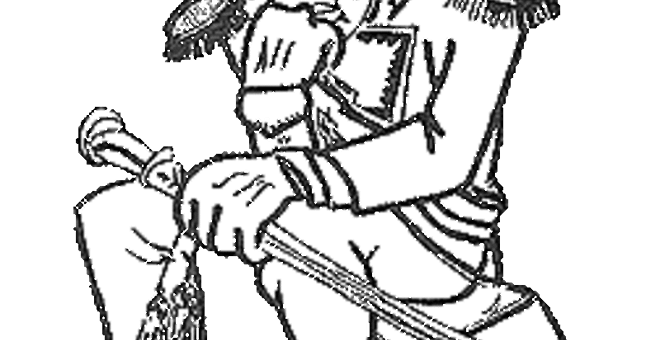Quirino Cristiani: The Mystery of the First Animated Movies / Quirino Cristiani: The Mystery of the First Animated Movies
Gabrielle Zucchelli
United Kingdom / 2008 / 90' 0''Screenings
Europa Cinema, 16:00 h
Synopsis
Who made the first animated feature film? Today virtually forgotten, film pioneer Quirino Cristiani discovered the craft of animation on his own, far from the experimental artists of Europe or the commercial constraints and glamour of Hollywood. In 1900, the 4-year old Quirino and his family leave Italy for Buenos Aires in Argentina. Not more than a teenager, he begins to work for Federico Valle, an Italian film pioneer recently arrived in Argentina. Encouraged by the ever-inventive Valle, Quirino makes his first animations. The success of his experiments inspires Valle to produce an all animated feature film. In 1917 "El Apóstol" premieres in a prestigious cinema in Buenos Aires. This hugely successful satirical picture on Argentinian president Yrigoyen, marks the beginning of a number of politically inspired animated movies. To make the movie, Cristiani develops a new cinematographic technique and patents it. In 1918 he leaves Valle and makes another film called "Sin dejar rastro" (Without a trace) but its controversial subject will cause the film to be confiscated by the authorities. During the twenties, Cristiani opens his own studio and animates several short films. He becomes a naturist, vegetarian and founds the first nudist colony in South America. Meanwhile Valle’s studio burns down and "El Apóstol" is lost forever. In 1928 he starts preparing his most ambitious project: an animated feature film with sound. Premiered in 1931, "Peludópolis", another satire on the president Yrigoyen, was the result of a troubled process of story changes due to the dramatic 1930 military coup by the first Argentinian dictator, general Felix Uriburu. Cristiani won’t risk another animated satire and for the rest of his career, he will produce short films and run his studio as a film laboratory. In 1941, he is visited by Disney who offers him a job in Hollywood. He declines and not long after, retires. In 1958 and again in 1961 the Laboratorios Cristiani burn to the ground. Cristiani loses virtually all his work. He goes to live near Cordoba (Argentina), in a beautiful and remote village. The world moves on and Cristiani is slowly forgotten. Nothing seems to have remained from his passing. Filmed in Italy, Argentina and England, this documentary features interviews with various experts, as well as Cristiani’s family and friends. Today we have uncovered one of his animations from 1919 and a "Making of Peludópolis", which have both miraculously survived. Apart from these shorts, we hear Cristiani’s story from the only remaining interview with him. And we also see him at work as an old man making his last animation in 1983. Cristiani died the following year.
Gabriele Zuccheli was born in 1972 in Italy. After studying Arts he began to work as an animator in Milan. In 1994 he moved to London where he worked as a character animator on TV specials ("The Tale of Mr. Tod", "The Wind in the Willow"), musical featurettes with Paul McCartney ("Tropic Island Hum", "Tuesday"), movies ("The Magic Sword", "The Tigger Movie", "The Road to El Dorado") and various commercials. In 2000 he supervised the animation on two sequences of the DreamWorks feature film "Spirit, the stallion of the Cimmarron" and in 2002 he completed two sequences for the animated opera "The Cunning Little Vixen for the BBC". After contributing to the character design for Tim Burton’s "The Corpse Bride", he worked as well as a CGI character animator and his credits so far include: "Dinotopia", "Harry Potter and the Prisoner of Azkaban", "Alien vs Predator", "Batman Returns". In 2004 he completed his first independently produced short film "For a Tango" which has won several awards at festivals around the world. He works as a freelance animation director.
Director
Gabrielle Zucchelli
Production
The Caravel Animation
Screenplay
Gabrielle Zucchelli
Sound
Montserrat Roig de Puig
Editing
Konrad Welz
categories
Special Screenings


